Affiliate links on Android Authority may earn us a commission. Learn more.
How much does the Apple Vision Pro weigh? Is it comfortable to wear?
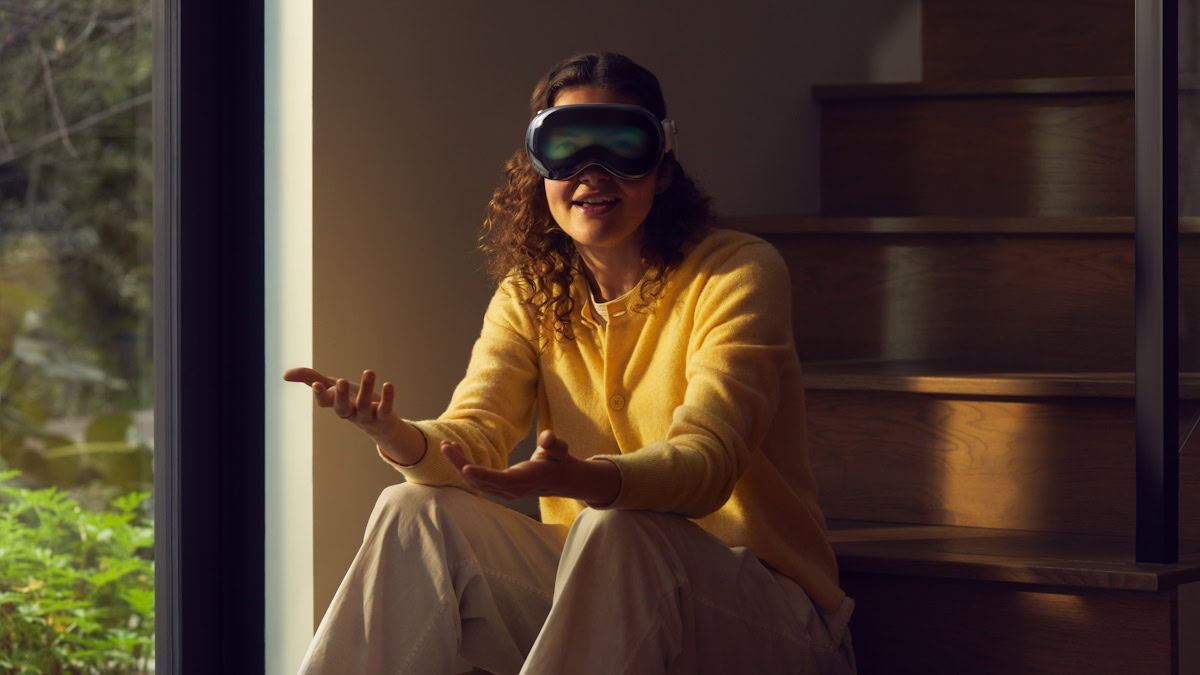
The Apple Vision Pro is the first AR-VR headset from Apple, marking the company’s entry into a segment that is still nascent. Apple is often one of the last entrants into a space, choosing to wait and let the market mature before releasing its product. But with Vision Pro and visionOS, the company is marching forward confidently with a sleek product that early reviewers are gushing about. Before you put on the Vision Pro headset, you may wonder about its weight. In this article, we tell you how heavy the Vision Pro headset is, how much it weighs, and what Apple is doing to keep it comfortably light and snug on your head.
QUICK ANSWER
Apple officially states that the Vision Pro headset weighs between 600-650g (21.2 -- 22.9 ounces), depending on the Light Seal and head band configurations. The battery separately weighs 353g.
JUMP TO KEY SECTIONS
How heavy is the Apple Vision Pro?
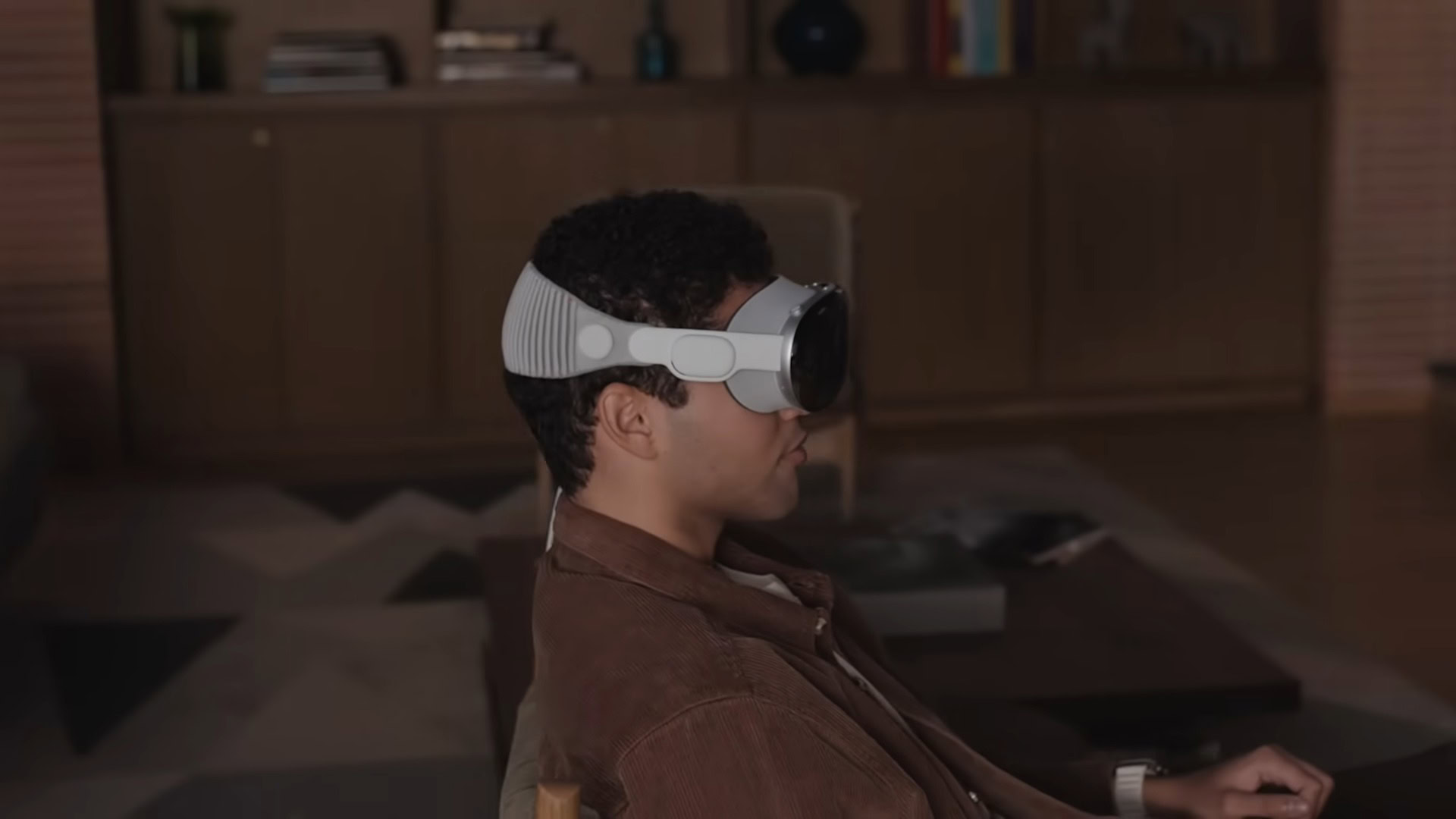
Apple has officially revealed that the Vision Pro weighs 21.2 to 22.9 ounces, so about 600 to 650g. The variation in weight is due to the different Light Seal and headband configurations. The battery weighs 353g separately.
Apple had been rather silent on the weight of the Vision Pro, revealing it only once the device went on open sale. Early reviewers who got a chance to try the device noted that the device was heavy, though not all of them found it uncomfortable. Consumer opinion on the same varies though, understandably.
How does the Apple Vision Pro compare to the competition for its weight?

Apple Vision Pro’s primary competition includes VR devices like the Meta Quest 2, the Meta Quest Pro, the HTC VIVE Pro 2, the Sony PlayStation VR 2, and the Valve Index. We’re excluding AR-only devices as that would not be a fair comparison.
| Announced | Weight | Price | |
|---|---|---|---|
Apple Vision Pro | Announced June 2023 | Weight 600-650g (headset), plus 353g (battery) | Price $3,499 |
Meta Quest Pro | Announced October 2022 | Weight 722g | Price Starts at $1,000 |
Meta Quest 2 | Announced September 2020 | Weight 503g | Price Starts at $300 |
Sony PlayStation VR 2 | Announced November 2022 | Weight 560g | Price $550 |
HTC VIVE XR Elite | Announced January 2023 | Weight 625g | Price $1,099 |
HTC VIVE Pro 2 | Announced May 2021 | Weight 850g | Price $1,399 |
Valve Index | Announced April 2019 | Weight 810g | Price $999 |
HP Reverb G2 | Announced Refreshed in October 2021 | Weight 550 | Price $599 |
As you can see, the Apple Vision Pro is on the heavier side, especially when compared against recent competition. It becomes one of the heaviest VR headsets around if you include the weight of the battery, though it is important to note that the battery does not sit on your head. Still, it will need to be worn for freedom of movement.
Some competitors of the Vision Pro are significantly heavy if you count only the weight of the headset. These include the recently announced Meta Quest Pro. So the Apple Vision Pro should have an advantage over them, though the pricing tips the scales back in favor of the competition.
It is important to note that the Vision Pro is a standalone AR-VR headset, meaning all computing elements are contained within the headset itself. You don’t need to connect to a computer for the headset to work. The headset’s weight becomes impressive in that context.
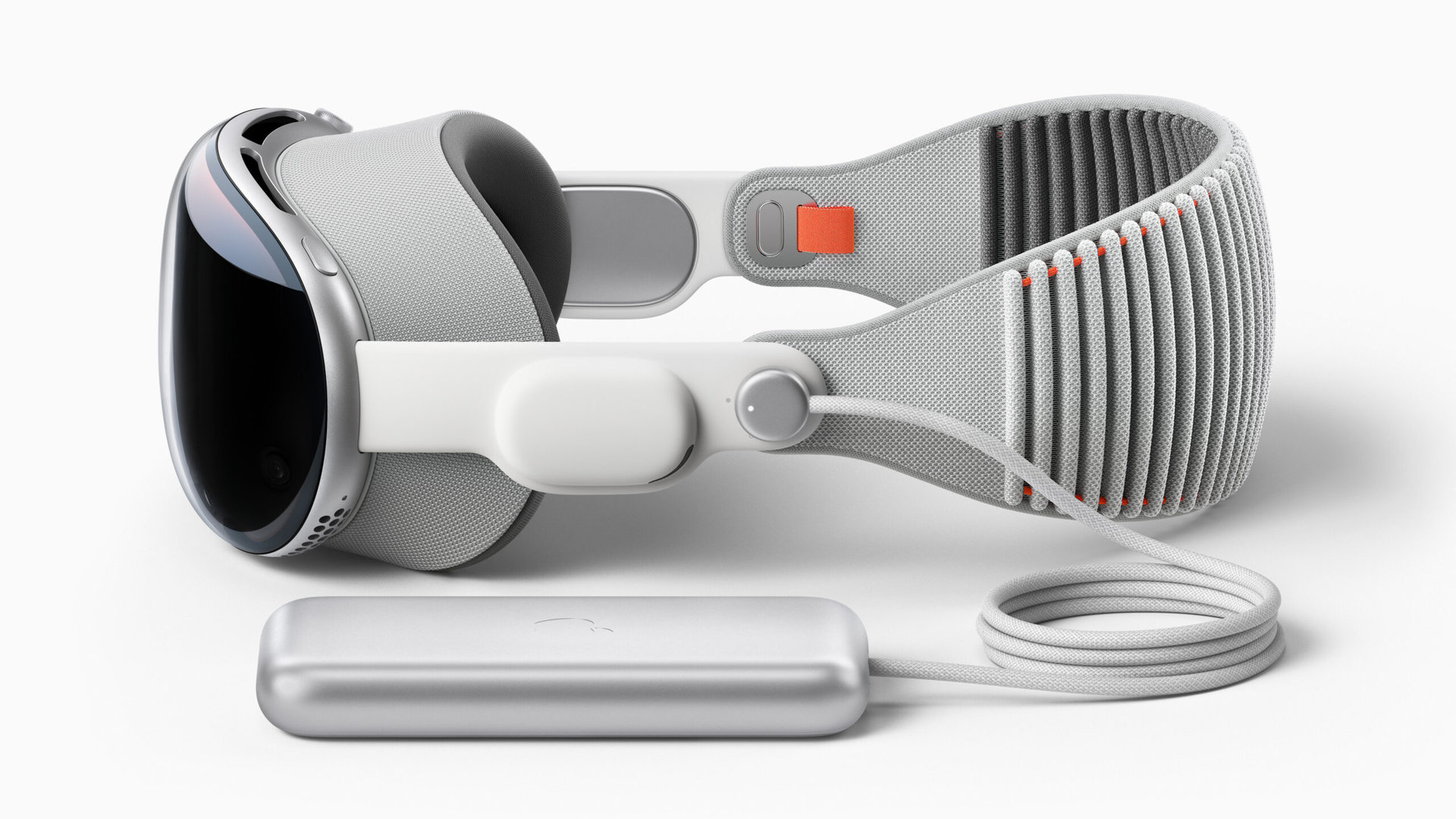
Apple was smart to decouple the battery from the headset, which makes the head element lighter while your body comfortably handles the weight of the battery pack.
Is the Apple Vision Pro comfortable to wear?
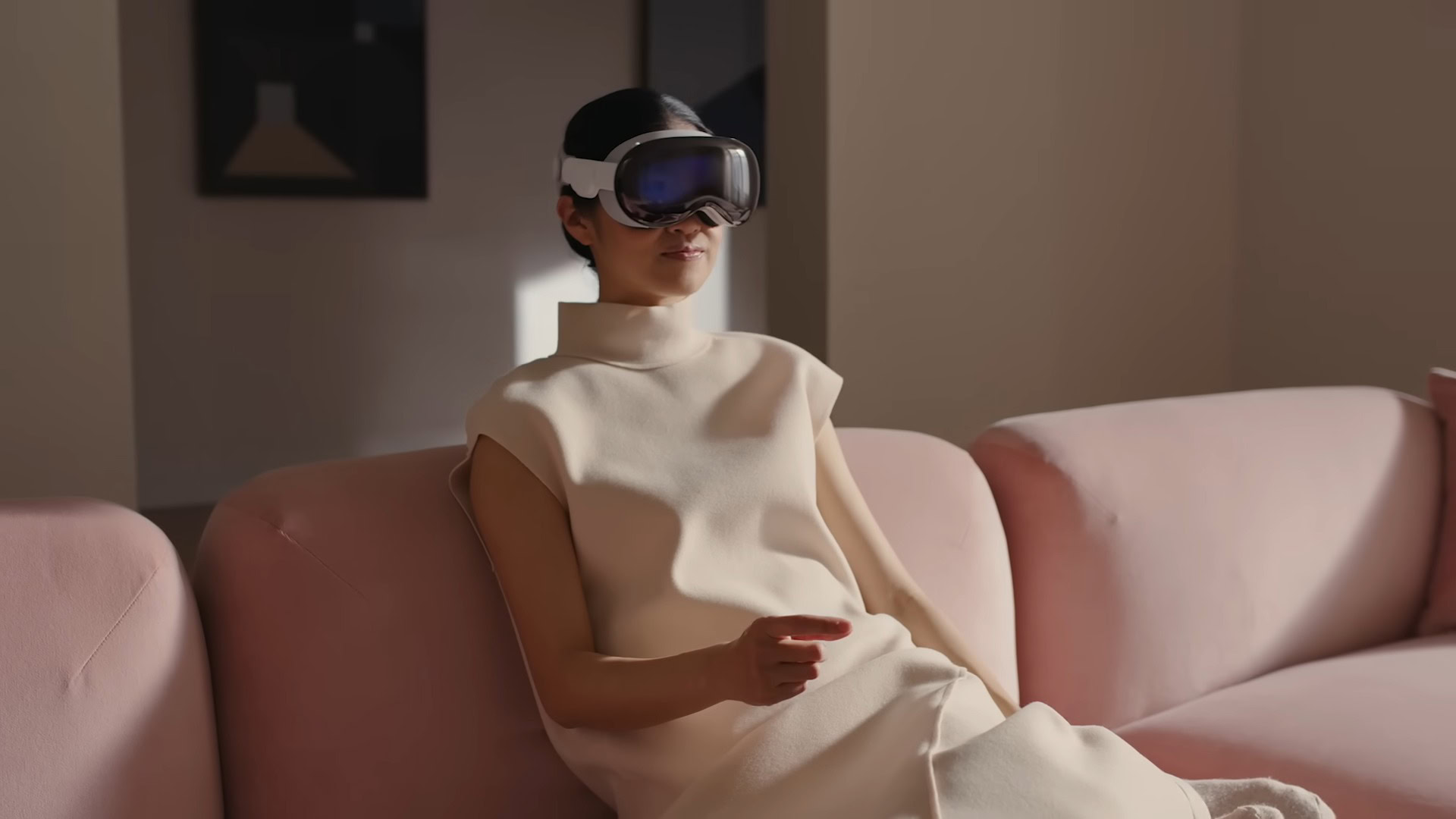
Apple has focused on comfort for the Apple Vision Pro. Speaking of general sentiment, it seems that people do notice the weight of the headset, especially if they wear it for an extended period of time. For shorter durations, like under half an hour, most people do not find it uncomfortable and can get used to it. They do notice it is understandably front-heavy, though.
Apple includes two straps with the Vision Pro: a Solo Knit Band and a Dual Loop Band. Surprisingly, the Vision Pro’s $3,499 price tag includes both straps, which is not something that Apple usually does.
The Solo Knit Band is the fancy band that you see in all marketing materials, while the Dual Loop Band is the band that most people have taken preference towards. The Dual Loop Band does a better job at distributing the weight of the headset on your head, so you can use the Vision Pro for longer without being fatigued.
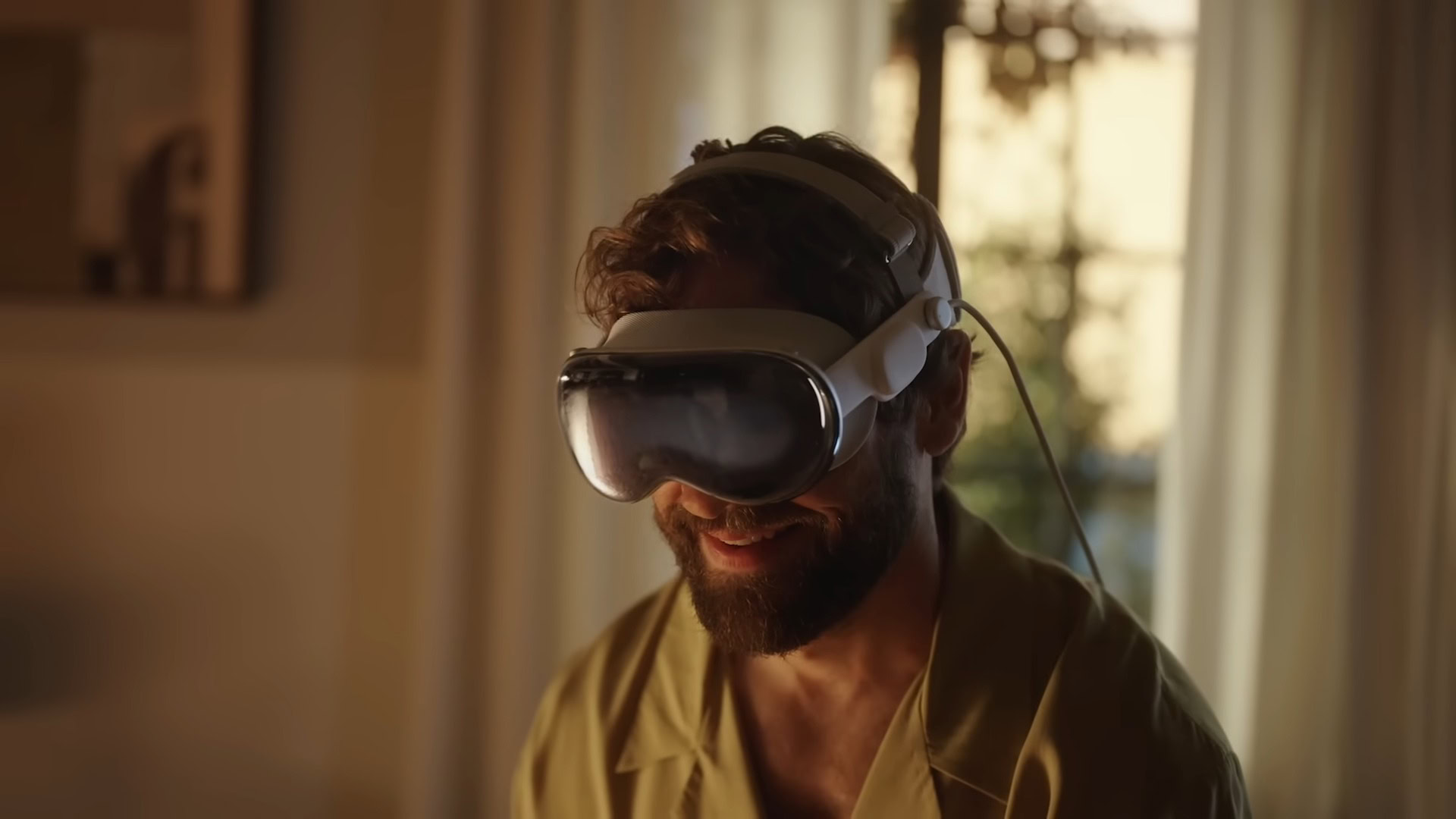
While the additional strap may not add to the aesthetic appeal of the headset, it massively helps keep the headset snugly attached to your face. It also greatly helps redistribute the headset’s weight, making it feel less front-heavy and more balanced.
Even with the singular Solo Loop strap, Apple has taken great care to ensure that the wearer remains comfortable. The Solo Loop strap provides cushioning, breathability, and stretch. A dial on the right side of the headset lets you tighten or loosen the strap for a precise fit.
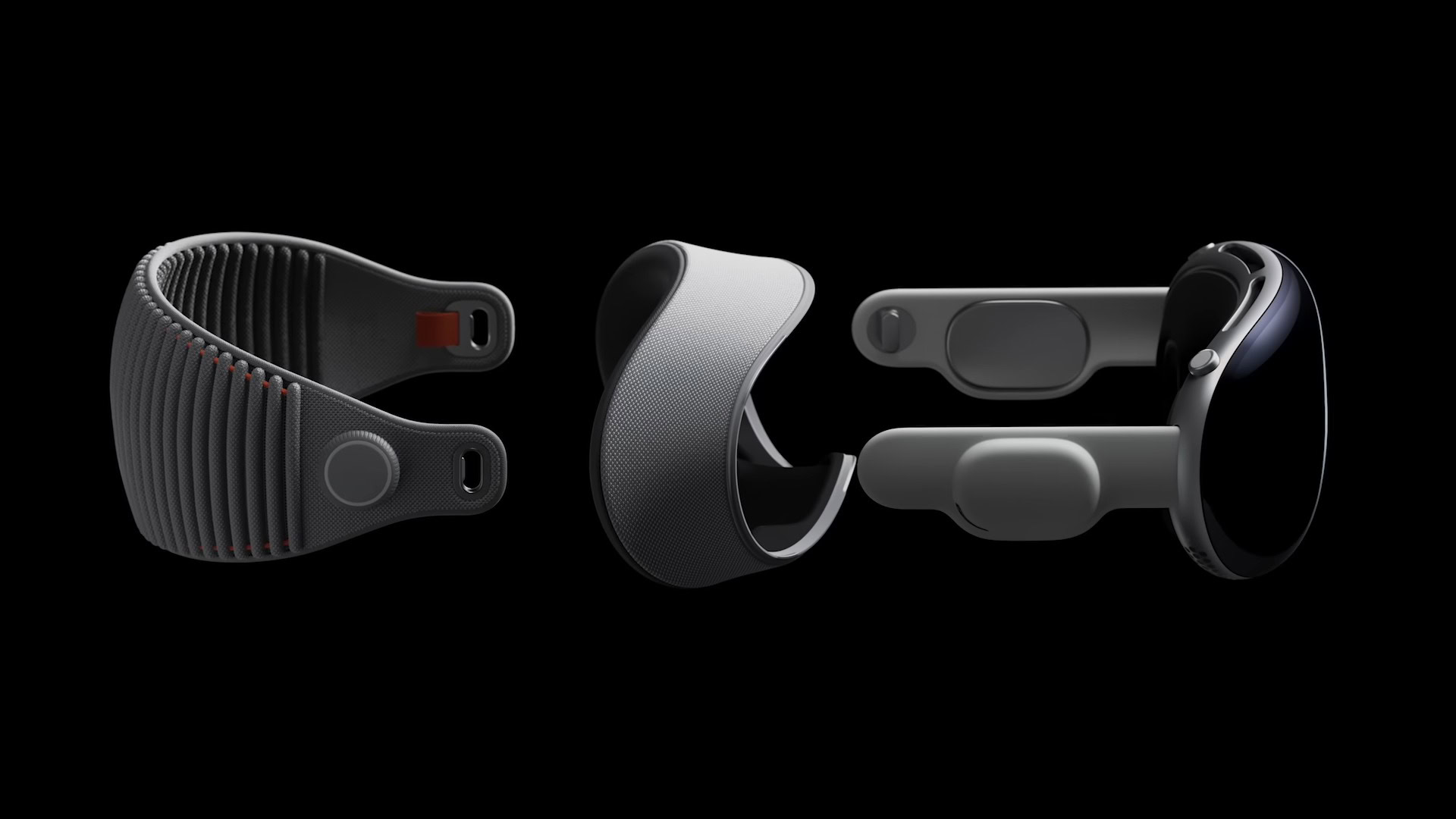
The comfort theme continues with the front of the headset too. For the part where the headset meets your face, Apple has crafted a modular system for the face cushion, allowing for a better “tailored” fit that can accommodate a wide range of people and facial features. Since this is an Apple product, the face cushion is called Light Seal, and it is made of a soft textile that comes in various shapes and sizes.
It’s clear that comfort is one of Apple’s foundational pillars for its vision of spatial computing. How consumer reception to the device changes over its longer lifecycle remains to be seen.
FAQs
No, the Apple Vision Pro is not wireless, but it is standalone. A wire connects the headset to its battery pack, and if you choose, you can also have the battery pack connected to the wall through a USB-C cable. The Vision Pro is a standalone headset that does not need any additional connected computer, like a Mac or an iPhone, to work. You do need an iPhone for the initial setup, but one is not required for daily use.
The Apple Vision Pro’s battery pack weighs 353g on its own. Thankfully, this weight is not felt on your head as the battery pack is not integrated into the headset.